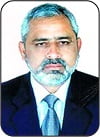A Study of Under-Graduate Students’ Attitude towards Computer
Abstract
ABSTRACT: Nowadays, the role of Information and Communication Technology (ICT), especially in education sector, has been increased to empower the educational activities. Computer as an integrated part of ICT has become a very crucial and handy tool to perform the various required educational activities. All the ladders of education system have their own ways and purpose to use the computer based applications in their set up. So, computer education has become mandatory in every walks of the life. Educational activities at any level cannot be performed effectively until and unless one seeks help from the computer based applications. For an effective use of computer, one should have proper attitude towards computer as well as computer education. That is why the present study aims to investigate the computer attitude of under-graduate students of Science and Social Science streams. A sample of 100 (male = 50, female = 50) was drawn by using standardized Computer Attitude Scale, according to T. Khatoon & M. Sharma (2011), from the under-graduate students of Science and Social Science Faculties of AMU (Aligarh Muslim University) in Aligarh UP (Uttar Pradesh), India. A non-probable purposive sampling technique was used to draw the sample. In order to test the hypotheses, descriptive statistical measures like Mean and Standard Deviation and t-test were applied. Analysis of data revealed that there is no significant difference between the computer attitude of under-graduate students of Sciences and Social Science streams at all the basis of comparison. The study has an educational implication for educational practitioners and professionals.
KEY WORDS: Information and communication technology, computer education, computer attitude, gender, science and social science streams, and educational practitioners and professionals.


About the Authors: Mohd Hasan is a Research Scholar at the Department of Education AMU (Aligarh Muslim University), Aligarh, Uttar Pradesh, India; and Assoc. Prof. Dr. Mohammad Parvez is a Lecturer at the Department of Education AMU, Aligarh, Uttar Pradesh, India. For academic purposes, the author can be contacted via mobile phone at: +91-9451513343 or be searched at an e-mail: mhasanedu@gmail.com
How to cite this article? Hasan, Mohd & Mohammad Parvez. (2015). “A Study of Under-Graduate Students’ Attitude towards Computer” in EDUCARE: International Journal for Educational Studies, Vol.8(1) August, pp.23-30. Bandung, Indonesia: Minda Masagi Press and UMP Purwokerto, ISSN 1979-7877.
Chronicle of the article: Accepted (May 13, 2015); Revised (July 16, 2015); and Published (August 25, 2015).
Full Text:
PDFReferences
AICSM [All India Computer Saksharta Mission]. (1999). An Autonomous Institution. New Delhi: Registered No.61/RJ, 1882-17-4219/IV and 21, 1880-S/55556, Government of India.
Allport, G.W. (1935). “Attitudes” in C.M. Murchenson [ed]. Handbook of Social Psychology. Warchester, Mass: Clark University Press.
Brock, B.D. & M.L. Sulky. (1994). “Attitude towards Construct Validation and Relation to Computer Use” in Journal of Organizational Behavioral, Vol.15, No.1, pp.17-35. Available online also at: http://www.jstor.org/page/info/about/policies/terms.jspJSTOR [accessed in Aligarh, India: May 20, 2015].
Despotakis, C.T., E.G. Palaigeoriou & A.I. Tsoukalas. (2007). “Students’ Attitudes towards Animated Demonstrations as Computer Learning Tools” in Educational Technology & Society, 10(1), pp.196-205.
Fisseha, Mikre. (2011). “The Roles of Information and Communication Technologies in Education Review Article with Emphasis to the Computer And Internet” in Ethiopian Journal of Education and Science, Vol.6, No.2. Available online also at: Http://Www.Ajol.Info/Index.Php/Ejesc/Article/Viewfile/73521/62437 [accessed in Aligarh, India: May 20, 2015].
JLNCSM [Jawahar Lal Nehru Computer Saksharta Mission]. (2010). Trust & Society. New Delhi: Registered Under the Society & Public Trust Act 21860 (Reg. No S97) and Public Charitable Trust Act 1882, Under Section 17 Reg. No.1946 from Government of India.
Kay, R. (2007). “Gender Differences in Computer Attitudes, Ability, and Use in the Elementary Classroom”. A Research Monograph. A Research into Practice Sellers Produced by a Partnership between the Literacy and Numeracy Secretariat and Ontario Association of Deans of Education.
Khatoon, T. & M. Sharma. (2011). Computer Attitude Scale: A Manual for CAS. Agra, Uttar Pradesh, India: Agra Psychological Corporation.
Kinzie, B.M., B.A.M. Decourt & M.S. Powers. (1994a). “An Examination of Gender Differences in Computer Attitudes, Aptitude, and Use”. ERIC Paper presented at the Annual Conference of the American Educational Research Association in San Francisco, CA, on April 20-24.
Kinzie, B.M., B.A.M. Decourt & M.S. Powers. (1994b). “Attitudes and Self-efficacy Across Undergraduate Disciplines” in Research in Higher Education, Vol.35, No.6, pp.745-754. Available online also at: http://www.jstor.org/stable/40196198 [accessed in Aligarh, India: May 20, 2015].
NCSM [National Computer Saksharta Mission]. (2008). Ministry of HRD Government of India. New Delhi: Regd. No.Is S-6422 1233.
Singh, K. & R.K. Allen. (2007). “Women in Computer-Related Majors: A Critical Synthesis of Research and Theory from 1994 to 2005” in Review of Educational Research, Vol.77, No.4, pp.500-533. Available online also at: http://www.jstor.org/stable/4624909 [accessed in Aligarh, India: May 20, 2015].
Smith, R.C. (2000). “Starting with Ourselves: Teacher-Learner Autonomy in Language Learning” in B. Sinclair, I. McGrath & T. Lamb [eds]. Learner Autonomy, Teacher Autonomy: Future Directions. London: Longman, pp.89-99.
Vale, M.C. & C.G. Leder. (2004). “Student Views of Computer-Based Mathematics in the Middle Years: Does Gender Make Difference?” in Educational Studies in Mathematics, Vol.56, No.2/3, pp.287-312. Available online also at: http://www.jstor.org/stable/4150285 [accessed in Aligarh, India: May 20, 2015].
EDUCARE: International Journal for Educational Studies. Ciptaan disebarluaskan di bawah Lisensi Creative Commons Atribusi-BerbagiSerupa 4.0 Internasional
